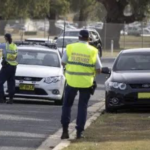Australian Border Force Laws Under Fire Again

It’s been just a matter of weeks since the Australian Border Force (ABF) made headlines for proposing to conduct random visa checks on the streets of Melbourne, but the newly formed government agency has found itself in hot water once again.
It was recently revealed that the ABF was responsible for transporting an Iraqi refugee who is facing serious drug charges to the Christmas Island Detention Centre before a court had decided whether he should stand trial.
A Catch-22 Situation
The 31-year-old man is suspected of smuggling $6 million worth of heroin and ecstasy into Australia, and already has a ‘lengthy criminal record’ in Australia.
He has been living in Australia since 1998 on a humanitarian visa, but was taken into police custody when he went to report to police in accordance with his bail conditions.
A magistrate later granted him bail on the basis that he did not pose an “unacceptable risk” and needed to care for his wife and young child – but instead of living life in the community while awaiting court, he had his visa cancelled by Immigration Minister Peter Dutton and was transferred to Christmas Island on a specially chartered flight that is estimated to have cost taxpayers hundreds of thousands of dollars.
His family and lawyers were never informed about his transfer, with some of his loved ones fearing that he had been the victim of an underworld murder.
New powers granted to the Immigration Minister allow him to deport those suspected of criminal offences.
Since the new laws were introduced, an estimated 366 people have been detained – but this is believed to be the first time the powers have been applied to hold a non-citizen in immigration detention while they await the outcome of a criminal case.
The news follows an announcement by the Minister in May that offshore detention centres would be used as temporary holding ports for those being deported from Australia.
The case represents a unique intersect between judicial and ministerial powers which result in a catch-22 situation, with criminal lawyers suggesting that it may be better for certain migrants not to apply for bail at all, because those granted bail run the risk of being transferred to offshore immigration detention, and time spent in those centres will not normally count towards any prison sentence that they may ultimately receive.
The Right to a Fair Trial?
Human rights advocates have slammed the decision to transfer the man to offshore detention, saying that it interferes with his right to a fair trial.
The man was due to face a Melbourne court just days after he was sent to Christmas Island – but his transfer makes it extremely difficult for him to access legal representation and prepare for his case, and could lead to significant delays and expense as he is transferred back-and-forth.
These issues have been raised by Human Rights Commissioner Gillian Triggs, who has demanded ‘greater clarity about this, and what it means for people who are on trial, and those who may be held indefinitely.’
Ms Triggs has also warned of the dangers involved in housing suspects alongside women and children seeking asylum.
The Future
The future looks bleak for those who have their visas cancelled by the Minister under new laws.
Many, like the man described above, have lived in Australia for many years and have strong ties to this country. To have their visas cancelled and face deportation to the country from which they fled is a confronting prospect.
There are fears that non-citizens will be left stranded with nowhere to go – as many are unlikely to be accepted by their home country. This raises the possibility that these people could be kept in offshore immigration detention indefinitely, an unjust and expensive proposition.
Thankfully, in the case of the Iraqi man discussed above, a Magistrate intervened and ordered his return to the mainland for his court hearing.
But if these powers are used extensively, there is every chance that others could face a more ominous fate, with limited access to legal representation hampering their ability to receive a fair trial – and the possibility of remaining in immigration detention for a very long time.






